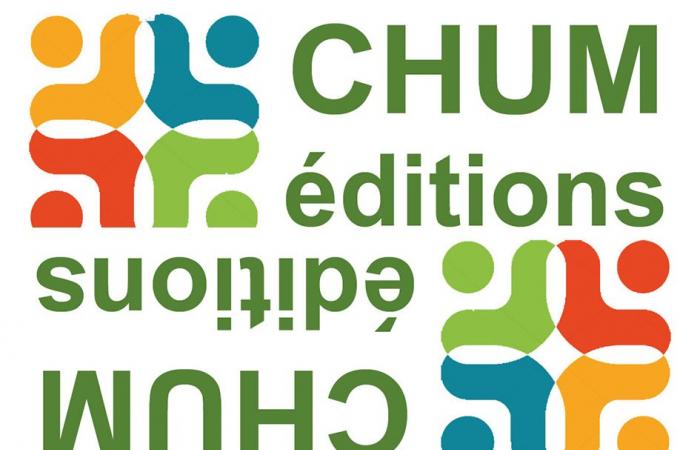By a judgment rendered on March 26, 2025 (RG 20/13029), the Aix-en-Provence Court of Appeal comes to significantly specify the contours of the contractual obligations incumbent on publishers in terms of promotion and dissemination of literary works. This important decision is part of a broader jurisprudential framework aimed at maintaining the necessary balance between the interests of the authors and those of the publishers, in accordance with the provisions of the Intellectual Property Code. The judgment offers an in -depth analysis of the concepts of active diffusion and exploitation followed, essential to the proper execution of publishing contracts.
Abusive termination?
In this case, Henri Weigel had concluded two separate publishing contracts with the publisher SAS Les Éditions CHUM, relating to two different works respectively. After several years, the author considered that the publisher was seriously missing on his contractual obligations, in particular in terms of continuous exploitation and active promotion of published works. Following a formal notice remained without satisfactory response, the author decided to unilaterally terminate the two contracts.
Reacting to this termination, the publisher company assigned the author before the Marseille judicial court in order to obtain compensation for the damages resulting from the unilateral and brutal rupture of contracts by its author, with prohibition to publish the books of which it had acquired the rights, as well as its disloyalty both in the execution of contracts and in the conditions of the rupture, due to the denigration of which it was the subject broadcaster, Hachette. At first instance, the court had agreed to the publisher, considering termination as abusive and condemning the author to repair the damage suffered. The author then appealed this decision before the Aix-en-Provence Court of Appeal.
The obligation to promote, activate and operate followed
At first, the Court considered that the Chum editions claiming to be a faulty termination of the contract by Henri Weigel, it belonged to them to demonstrate that the conditions provided for by the Intellectual Property Code and the clauses of the publishing contract were not met, so that the termination was not justified.
Thus, the termination letter did not include grievances precisely stated, referring only to a formal notice, which denounced an absence of dissemination of the book LEFER FRUITS Since July 2015, and a total absence of broadcasting for the book The sword of Nemesis. Set up in your organization, a commercial distribution, in accordance with the uses of the profession, with regard to my two books in reference and to comply with the commitments in terms of exploitation of the work in digital form in digital form ».
Indeed, Henri Weigel reproached the Chum editions for not having sufficiently implemented promotion actions which arise from the legal and contractual obligation of the publisher for ensuring a permanent exploitation and followed by the work and of ensuring a commercial dissemination in accordance with the uses of the profession.
Necessary provisions
In its judgment, the Court recalled that the dissemination of the work is only possible that the publisher takes all the necessary measures to bring to the knowledge of the public the existence of the work and thereby encourage it to acquire it, so that the dissemination obligation necessarily implies the obligation to ensure the promotion of the work. However, the publisher’s promotion effort necessarily depends on the nature of the work and the turnover envisaged, as well as the size of the author’s publishing house and notoriety.
In addition, the Court judged that, to assess whether the promotion obligation had been respected, it was necessary to refer to the contractual provisions. In this case, the contract provided that: ” From the publication of the work, the publisher is required to ensure active dissemination of the work in order to give it all its chances of success to the public. To this end, he will have to present the work on his paper and digital catalogs; Present the book as available in at least one of the main interprofessional databases listing the works available commercially; Make the work available in a quality respectful of the work and in accordance with the rules of the art, regardless of the dissemination circuit; satisfy as soon as possible the commands of the structure ».
-Mailings with booksellers and journalists
To demonstrate the exploitation and monitoring of the work, the Chum editions justified communication by the Edissio news agency for the promotion of the book LEFER FRUITSof a communication by mailing to 5,000 booksellers and 212 journalists, of a press kit concerning the book LEFER FRUITSextracts from interprofessional databases, and catalogs of online bookstores of notoriously known companies justifying the provision of the two books, as well as its participation in various literary fairs.
But the Court noted that all of these elements were prior to the publication of the work, while the permanent nature of the required exploitation involved both the duration and the absence of discontinuity. In addition, if the books were available on request in all physical bookstores, on the Internet, and out of a hundred online bookstores for its digital version, the Court estimated that this did not allow to demonstrate the promotional actions concretely implemented by Chum editions, while it was not disputed by the latter that Henri Weigel had carried out operations to promote his works, considering the services of his insufficient publisher.
In the absence of any document demonstrating both the promotion actions that it has concretely implemented, that the permanence of the exploitation beyond the month of publication of the book, the Court considered that the Chum editions had therefore not justified having respected their obligation of commercial dissemination in accordance with the uses of the profession, such a failure justifying not only the termination of the contract, but also engaging its contractual responsibility.
Finally, the Court estimated that the damage suffered by the author could only be that born of the hope of superior copyrights that a promotional presentation of the works could have generated. In view of the number of copies sold (177 in 2016, 193 in 2017 and 66 in 2018), and the number of printed copies, the Court set Henri Weigel’s damage to the sum of 3,000 euros.
Jurisprudential scope of the judgment
This judgment is of significant jurisprudential importance by explicitly specifying the requirements imposed on publishers. The Court clearly claims that the only provision of the work in catalogs does not meet the obligation of active diffusion. It thus defines a strict jurisprudential line in terms of promotional obligations, enjoining publishers to carry out concrete, effective and regular procedures to actively promote the works they publish. This decision also strengthens the protection of authors, offering them an effective lever to act in the event of a manifest deficiency of the publisher, guaranteeing an optimal exploitation of their literary creations. This jurisprudence could have a significant impact on future editorial practices, encouraging publishers to increased vigilance in the execution of their obligations.
Alexandre Duval-Stalla
Olivier Dion – Alexandre Duval -Stalla
Alexandre Duval-Stalla is a lawyer at the Paris and writer. Former secretary of the conference of the Paris Bar (2005) and former member of the National Consultative Human Rights Commission, he is the founding president of the association “Read to get out” which promotes reintegration by reading people detained and the literary prize André Malraux.
To download this document, you must first buy the corresponding item.








